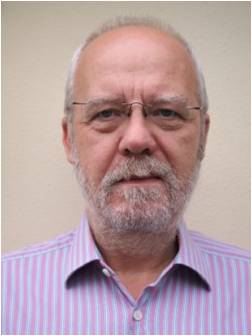Home » Seminars Lectures
Prof. Kevin D Potter

National Composites Centre, UK
Time��13:30-15:00, 29 September, 2017
Address��Room 326, Cao Building, Yuquan Campus
Inviter��Prof. Huaxin Peng
Kevin D Potter, National Composites Centre Professor in Composites Manufacture, University of Bristol. He graduated in Materials Science from Imperial College London in 1974 and was awarded a PhD in Composites Manufacture from the University of Bristol in 2004. His work in both academic and industrial settings has focused on design and manufacture of composite materials and the products made from them, with a strong emphasis on drape modelling, developing processes such as Resin Transfer Moulding and automated processes such as Automated Fibre Placement and robotic lay-up and the origins and impacts of defects in mouldings.
Abstract
In the 50 years since strong and stiff carbon fibres became commercially available the advanced composites industry has progressed from small scale and niche applications in defence and space to being the structural material of first choice for large commercial aircraft and is on the cusp of breaking through into automotive and other sectors. This progress has been achieved due to the exceptional structural performance available from carbon fibre composites compared to conventional metallic solutions. However, that performance is only achieved with great care in the manufacturing processes and at a high financial price. Current research is targeting cost reductions and high volume manufacture through automation, improved materials with more damage resistance, novel structural forms to control damage growth, greater sustainability and recyclability of composites, improved simulation for both processing and performance, and multifunctional materials and structures.
1. Composites Manufacturing and Materials Research in the University of Bristol -ACCIS and the NCC.
2. An experimental technique to characterize interply void formation in unidirectional prepregs.
3. Understanding and predicting defect formation in automated fibre placement pre-preg laminates.
InCSI Special Composites Seminar ��No. 7��

